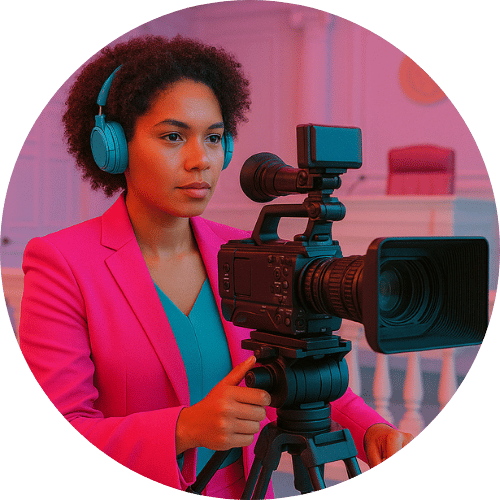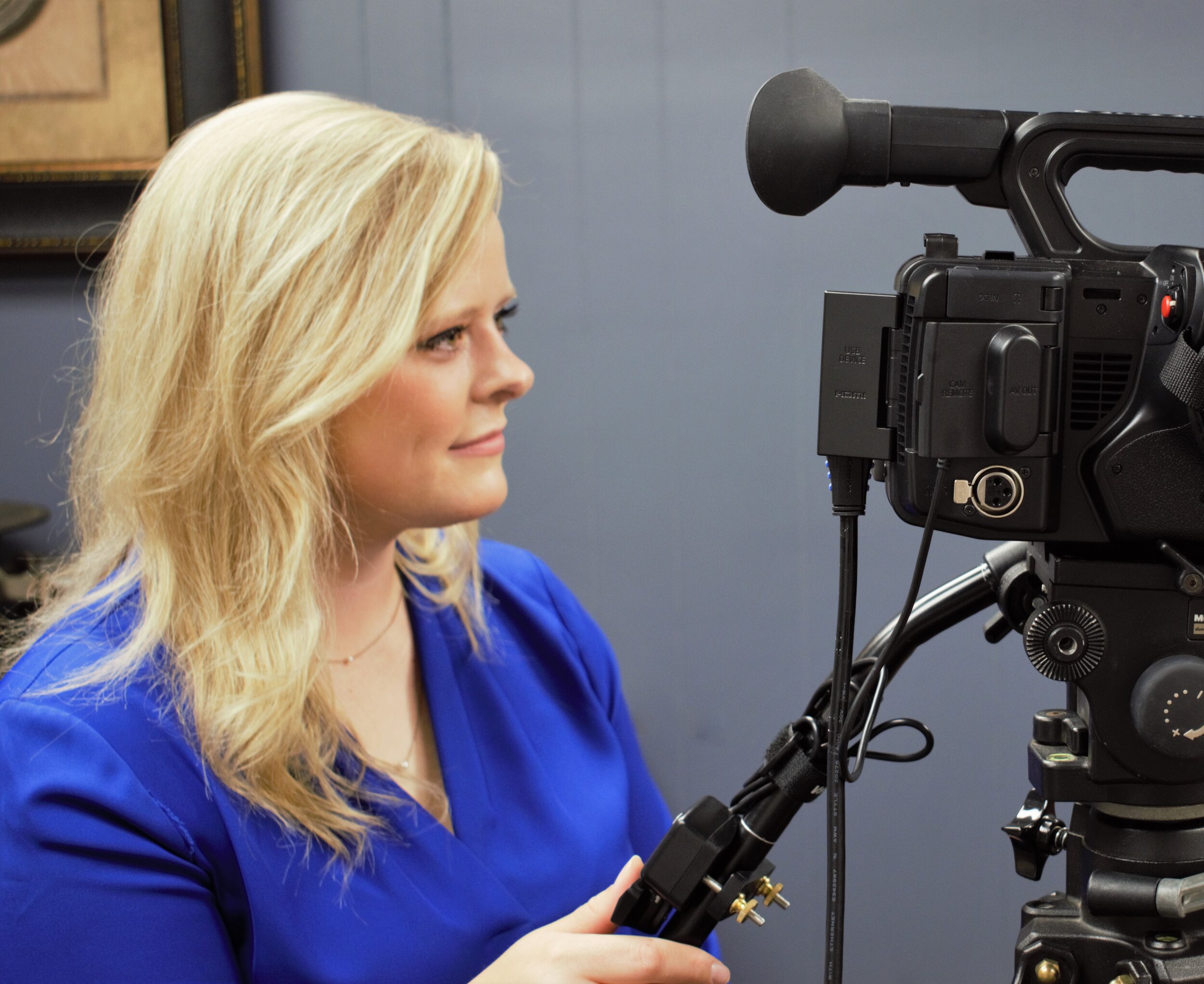Exploring the Different Kinds Of Legal Videographers and Their Distinct Offerings
Legal videographers play a critical function in the judicial procedure, each focusing on unique facets of court room paperwork. Their knowledge varies from capturing witness testimonies to enhancing test presentations. Understanding the varied offerings of these experts can illuminate their contributions to legal procedures. As the intricacies of modern-day lawsuits grow, the importance of their functions ends up being increasingly obvious. What specific features do these videographers offer, and just how do they influence the outcomes of situations?
Understanding Legal Videography
Legal videography plays a vital role in the judicial process, providing aesthetic documentation that can enhance the quality and accuracy of legal process. This specific area involves catching video recordings of various legal occasions, such as trials, hearings, and various other significant minutes within the legal system. Legal videographers use sophisticated equipment and techniques to assure top quality video footage, which can function as vital evidence throughout litigation.Understanding legal videography requires identifying its relevance in sharing information in an aesthetic style. The recorded video can aid juries and judges much better recognize the context and nuances of testaments and events, potentially affecting decisions. Furthermore, legal videographers need to abide by stringent guidelines and criteria to maintain the integrity of the recordings. Their work not only aids in protecting an in-depth account of procedures but additionally contributes to the total openness and liability within the legal framework, ensuring that justice is offered efficiently.
Deposition Videographers
Deposition videographers play a necessary function in legal process by videotaping witness statements for future reference. They utilize specialized tools and methods to assure high-quality video clip documents that accurately captures the nuances of each deposition. Comprehending their approaches and the relevance of their job can improve the efficiency of legal discussions.
Function in Legal Procedures
While frequently forgotten, the duty of videographers in legal proceedings is important, particularly during depositions. These experts document witness statements, recording both verbal and non-verbal cues that can be crucial in court. Their recordings work as an accurate depiction of the deposition, offering a reputable reference for attorneys and courts. Videographers ensure that the environment is specialist, minimizing diversions and adhering to legal standards. They are educated to deal with different scenarios, including unanticipated disturbances or technological troubles, securing the honesty of the tape-recorded material. In addition, the presence of a videographer can hinder evasive habits from witnesses, advertising even more candid feedbacks. Overall, their payments greatly boost the quality and effectiveness of legal procedures.
Tools and Techniques Made Use Of
The tools and methods used by deposition videographers are important for producing top quality recordings that properly catch witness testimonies. Professional-grade cameras, frequently with 4K resolution, guarantee clear visuals, while high-fidelity microphones capture audio without distortion. Videographers commonly employ tripods for security and lighting devices to improve exposure, especially in less-than-ideal setups. Techniques such as mounting the witness correctly and keeping proper angles are essential for communicating body language and expressions. Numerous deposition videographers also utilize digital editing software application to enhance the end product, ensuring clarity and comprehensibility. In addition, they may incorporate time-stamping and comments during post-production to facilitate referral throughout legal process, eventually giving a comprehensive and dependable record of the deposition.
Trial Discussion Videographers
Test presentation videographers play an important function in court room setups by efficiently visualizing proof and improving the narration process. Using innovative innovation and specialized equipment, they create compelling discussions that help courts and courts understand intricate info. Their experience in effective narration methods additionally boosts the impact of legal arguments during trials.
Duty in Court Room Setups
Frequently, legal videographers play a necessary duty in courtroom settings by recording and providing aesthetic evidence that boosts the quality of legal debates. These experts specialize in recording witness testaments, depositions, and important evidence, making certain that the procedures are accurately videotaped for future reference. Their work not only aids in the immediate discussion of instances however likewise acts as a valuable resource during charms or reviews. Trial discussion videographers meticulously compile and modify video footage to develop engaging aesthetic stories that lawyers can use to persuade discretionary. By incorporating aesthetic elements right into the test, they substantially add to the overall efficiency of the legal process, assisting in an extra educated decision-making setting within the courtroom.
Modern Technology and Equipment Utilized
Modern test presentation videographers depend on sophisticated modern technology and customized tools to properly record and present proof in the courtroom. High-def video cameras are commonly utilized to assure that every detail is videotaped with quality, while numerous video camera angles can improve the aesthetic narrative. Videographers regularly use cordless microphones to record clear audio from witnesses and attorneys, reducing distractions. Furthermore, sophisticated software application tools permit real-time editing and smooth integration of video, images, and shows during discussions. Projectors and big displays are generally used to show content in an appealing manner, making certain that jurors and courts can conveniently comply with the process. This combination of technology and tools is vital for producing impactful courtroom presentations that help with understanding and retention of information.
Efficient Storytelling Strategies
Recording top quality video and audio is simply the starting for test presentation videographers; efficient storytelling strategies play a pivotal role in sharing complicated legal narratives. These professionals utilize various methods to enhance the quality and influence of the material provided. By meticulously structuring the visual and audio elements, they create a coherent circulation that guides jurors through the truths of the situation. Utilizing strategies such as thematic framing, sob story, and rational progression, they stress bottom lines and bolster the overall disagreement. In addition, integrating visuals, such as representations or computer animations, can simplify elaborate concepts and keep the target market engaged. Inevitably, trial discussion videographers change raw video into engaging stories that resonate with jurors, facilitating educated decision-making in the courtroom.
Video Clip Evidence Specialists
Video evidence professionals play a crucial duty in the legal procedure, ensuring that visual recordings their website are properly caught, protected, and provided in court. These experts are trained to manage a selection of taping equipment and strategies customized specifically for legal settings. They concentrate on acquiring top quality recordings that can endure analysis, sticking to rigorous methods to preserve the stability of the evidence.Often involved in the documentation of criminal activity scenes, depositions, and witness statements, video evidence experts are skilled in developing video footage that is both clear and dependable. They are also well-informed about legal standards and demands, making certain that their job adheres to jurisdictional regulations. Additionally, these specialists may assist in the post-production process, editing and enhancing and format videos for best discussion. Their knowledge help lawyers in efficiently sharing their instances, making the duty of video proof professionals essential in the pursuit of justice.
Court room Videographers
While the courtroom usually functions as the stage for crucial legal process, courtroom videographers ensure that these moments are documented with precision and quality. Their main function is to catch all aspects of a test, consisting of witness testimonies, opening up and shutting declarations, and jury responses. Making use of customized equipment, court room videographers guarantee that audio and video clip quality satisfy the criteria needed for legal documentation.These specialists are adept at functioning unobtrusively within the courtroom environment, maneuvering through the essential protocols and keeping the stability of the legal process. They often work together carefully with lawyers to recognize certain needs, making specific that essential components are videotaped for future reference.Furthermore, courtroom videographers play a vital role in protecting the authenticity of the proceedings, offering a very useful resource for allures or more legal activities. Their proficiency guarantees that all recorded product functions as a reputable account of the court room occasions for all parties involved.

Post-Production Services and Modifying

After the court proceedings are tape-recorded, the emphasis changes to post-production solutions and modifying, which play a substantial function in improving the caught material. Legal videographers utilize specialized software to enhance video clip quality, guaranteeing quality and professionalism and reliability. This phase typically includes shade adjustment, audio enhancement, and the removal of any type of additional video footage, producing a systematic narrative that aligns with legal standards.Additionally, videographers might incorporate graphics, annotations, or captions to supply context or emphasize critical details. The editing and enhancing process also involves arranging the video chronologically or thematically, making it much easier for legal groups to reference particular sectors throughout tests or depositions. Furthermore, legal videographers usually prepare final edits in various styles to fit various platforms go to this site and usages, guaranteeing availability for all stakeholders entailed. Ultimately, reliable post-production solutions are important for creating top quality legal video clips that support the case handy.
Often Asked Concerns
What Credentials Should I Look for in a Legal Videographer?

How Do Legal Videographers Ensure Video High Quality and Reliability?
Legal videographers assure video high quality and reliability via high-definition devices, cautious illumination, and audio monitoring - legal videographers. They additionally abide by legal criteria, make use of backup systems, and conduct complete pre-production planning to decrease possible problems throughout recordings
What Devices Do Legal Videographers Normally Utilize?
Legal videographers typically utilize high-definition electronic cameras, tripods for security, external microphones for clear audio, and lighting equipment to enhance visibility. They might likewise use editing software to guarantee sleek and specialist end products for legal procedures.
For how long Does the Modifying Refine Typically Take?
The editing and enhancing procedure for legal videographers usually varies, ranging from a few hours to numerous days. Variables such as video clip complexity, called for top quality, and certain client requests Continued greatly affect the general time commitment needed for conclusion.
Are Legal Videographers Accustomed To Court Etiquette?
Legal videographers typically have a solid understanding of courtroom rules - legal videographers. Their training frequently consists of understanding of etiquette, devices positioning, and respect for legal proceedings, ensuring their job aligns with the official ambience of the courtroom
Comments on “How legal videographers create compelling visuals for emotional impact in injury cases”